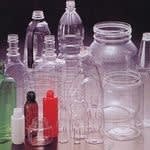 Making PET bottles from agricultural waste may be harder than using conventional cane sugars but it is possible, claims biofuel manufacturer Virent.
Making PET bottles from agricultural waste may be harder than using conventional cane sugars but it is possible, claims biofuel manufacturer Virent.The US-based company recently announced that it had created a PET feedstock - paraxylene (PX) - entirely from plant-based sugars using its own catalytic process.
The process results in the creation of a PET product, which has been trademarked BioFormPX, identical to PET made from petroleum.
Moreover, Virent claims it is possible to use a wide variety of feedstocks.
Kelly Morgan, a company spokesperson, said conventional sugars are easier to process but it is possible to use other agricultural products such as corn stover and pine residuals.
Morgan said: “We have the technology to process the entire spectrum of feedstock. When using “raw materials” which we call cellulosic biomass, there is more pre-treatment and deconstruction that needs to occur to remove contaminants and ensure quality. But, it can be done, we are doing it here at Virent.”
Virent has received investment from big companies including Shell, Cargill and Honda, and is working with potential partners and customers on expansion options for its 10,000 gallon a year demonstration plant in Madison, Wisconsin.
Morgan said the company is planning to have a commercial plant up and running by late 2014. The spokesperson added that there is sufficient demand for plant-based packaging to move to commercial scale production.
“Based on the conversations we’ve had thusfar, all parties are motivated to move quickly to scale to commercial production volumes,” said the spokesperson.
A number of big names in the food and drink industry have expressed interest in plant-based packaging and publicised their moves to bring it to market.
Tetra Pak is working with an institute in the US to explore the potential of turning forestry waste into plastic packaging materials. And PepsiCo has announced that in 2012 it plans to trial a PET bottle made from its own agricultural by-products such as orange peel, potato peel and oat hulls. It claims the innovation “far surpasses” existing technologies.
So far Coca-Cola is the only big company to have commercially launched a plant-based PET bottle.
Its Plant Bottle, launched in 2009, is 30 per cent plant-based – made by turning sugar cane into MEG, mono ethylene glycol. The remaining 70 per cent is made from purified terephthalic acid (PTA), which is made from traditional sources. The Virent technology deals with this remaining 70 per cent – creating PX from plant sources.
Outside of packaging Virent has developed a biofuel technology that turns plant sugars into gasoline, jet fuel or diesel.


